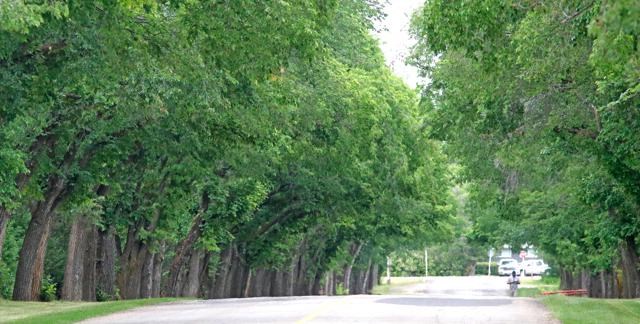WEYBURN – Starting Sept. 1, the annual ban on pruning elm trees in Saskatchewan ends.
The ban (which runs from April 1 to Aug. 31) coincides with the time of year when the elm bark beetles that spread Dutch elm disease (DED) are most active.
Fresh cuts from pruning can attract the tiny insects, increasing the chance of an infection. Incorrect and illegal pruning can damage your trees and spread diseases.
One of the most important ways that you can help prevent the spread of invasive pests is to avoid the illegal practice of transporting firewood or wood products from an infested area into and around the province.
Dutch elm disease is a fungal disease of elm trees, which is spread by the elm bark beetle. DED can affect any elm tree and once infected, the disease always kills – over several seasons or sometimes in as little as three weeks.
One of the most important ways that you can help prevent the spread of invasive pests is to avoid the illegal practice of transporting firewood or wood products from an infested area into and around the province.
The trees along your street are beautiful, but if you don’t know whether they’re elm trees, you don’t know if they are in danger. In many parts of Weyburn, American elms can grow very large, spreading an umbrella-like canopy.
Leaves are oval shaped, with pointed tip and serrated edges, and the bark is usually light to dark grey with a grooved surface.
Siberian or Manchurian elms are also susceptible to DED. They can take the form of shrubby hedges or single trees. The leaves are smaller and more elongated than those of the American elm.
There are approximately 2,200 elms growing in Weyburn’s urban forest, roughly half of which are located on City of Weyburn property. All of these trees continue to be at risk of contracting DED.
Infected trees were found in 2019 in the northwest corner of the city on Scott Street as well as on 12th Street. Qualified Parks Department staff are in the process of removing these trees to ensure the disease does not spread.
The disease has also been identified in Estevan, Carlyle, Fillmore, Yellow Grass and Trossachs areas.
The City of Weyburn has a successful DED prevention and control program. Virtually all aspects are performed by fully trained and qualified Parks Department employees.
The City employs a schedule where pruning occurs every fall and winter, resulting in each city-owned tree being pruned every five years. Basal spraying is also done to privately-owned elms following the receipt of written authorization from the property owner.




